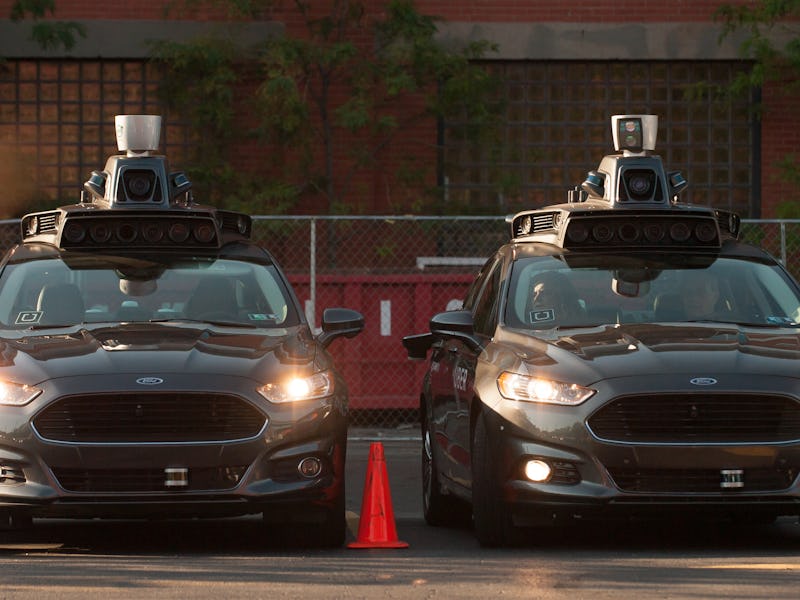Self-Parking Cars Will Save American Drivers Time and Money
17 hours a year saved.

The average driver spends 17 hours a year searching for a parking spots, a number that jumps dramatically in dense urban spaces, with New Yorkers spending a whopping 107 hours on average, Seattleites 58, and Detroit residents a still significant 35.
Fortunately, autonomous cars, which are closer than ever to the grasping hands of road-weary American drivers, could be the trick to changing all this, as the machines of the future will be parking themselves, or return all the way home until it’s time to come pick you up, or return all the way home until it’s time to come pick you up, or return all the way home until it’s time to come pick you up, or return all the way home until it’s time to come pick you up, or return all the way home until it’s time to come pick you up, or return all the way home until it’s time to come pick you up, or return all the way home until it’s time to come pick you up.
Right now, Americans not only wasted time in their search for an open spot, but money and literal energy, according to the new report, published Wednesday by transportation analytics service INRIX. The data also showed that last year every driver also lost an average $345 on spent fuel —and fueling the $20 billion paid parking industry. People also reported feeling anxious, missing appointments, and avoiding driving (which, hey, not always a bad thing) thanks to city streets overflowing with parked cars.
But if innovators like Elon Musk have their way, soon suped up self-driving sedans will drive the last nail in the parking problems coffin.
INRIX's data shows the burden of searching for parking spots on drivers in terms of both time and money lost.
See also: Google Maps Can Tell You How Utterly Horrible Parking’s Going to Be
While driverless cars aren’t yet available for purchase, the potential for autonomous vehicles to change our lives — and our cities — is well-documented. Right now, many new car models already come with parking assist features and manufacturers from Tesla to Volvo have shown autonomous test vehicles can park themselves in the lab and in the field.
Mayors and other government officials are starting to take note. Earlier this year, Detroit Mayor Mike Duggan spoke at a “City of Tomorrow” panel at the North American International Auto Show about the death of the parking garage:
“If self-driving vehicles are really close, it may not be that people are going drive a car and store it for eight hours in a structure; it may be that the self-driving car takes you to work, goes back home, and does errands with your spouse,” he said. Later Duggan added, “If a parking structure has a 50-year life expectancy, we should think about building smaller ones, at the very least.”
While the future is bleak for car lot owners and parking lot developers, it’s bright for just about everyone else. For one, Americans could spend 17 hours a year on much more important — or at least more enjoyable — things than parking. Cutting down on emissions from cars idling as they wait for a spot to open would also be good for the environment. And maybe our soon-to-be empty parking garages can be turned into something better — like an urban park or biergarten.
See also: Moving Through a Future City Will Actually Be Pretty Chill